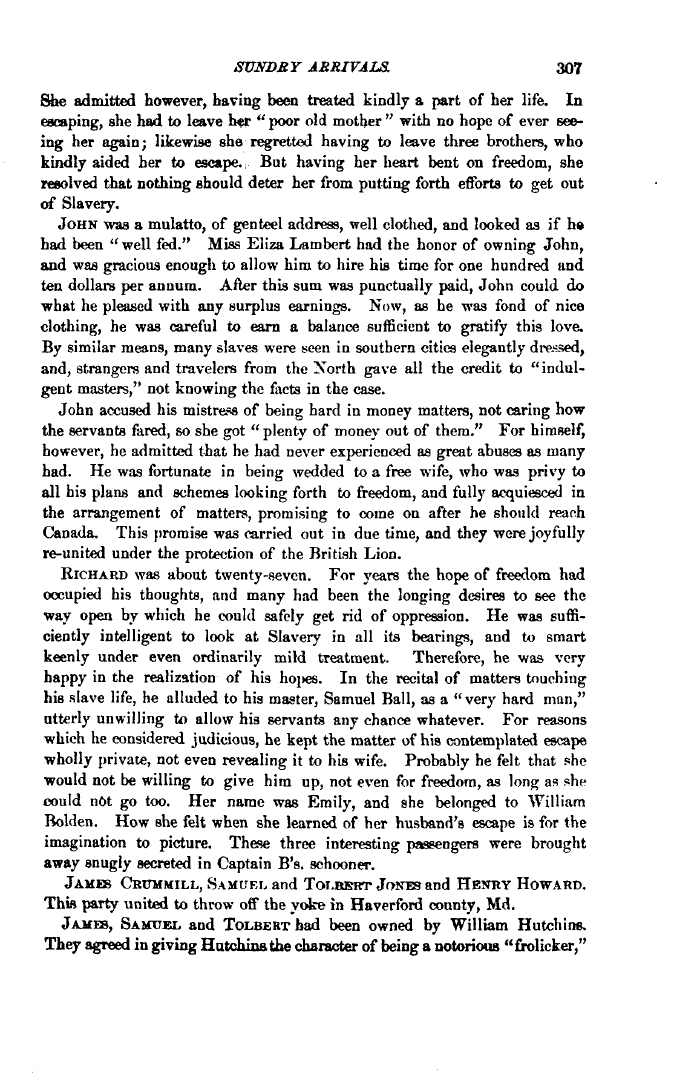 |
||||
 |
||||
| SUNDAY ARRIVALS. 307 She admitted however, having been treated kindly a part of her life. In escaping, she had to leave hw " poor old mother " with no hope of ever seeing her again; likewise she regretted having to leave three brothers, who kindly aided her to escape.,. Bat having her heart bent on freedom, she resolved that nothing should deter her from putting forth efforts to get out of Slavery. JOHN was a mulatto, of genteel address, well clothed, and looked aa if h« had been " well fed." Miss Eliza Lambert had the honor of owning John, and was gracious enough to allow him to hire his time for one hundred and tea dollars per annum. After this sum was punctually paid, John could do what he pleased with any surplus earnings. Now, as he was fond of nice clothing, he was careful to earn a balance sufficient to gratify this love. By similar means, many slaves were seen in southern cities elegantly dressed, and, strangers and travelers from the North gave all the credit to "indulgent masters," not knowing the facts in the case. John accused his mistress of being hard in money matters, not caring how the servants fared, so she got "plenty of money out of them." For himself, however, he admitted that he had never experienced as great abuses as many had. He was fortunate in being wedded to a free wife, who was privy to all his plans and schemes looking forth to freedom, and fully acquiesced in the arrangement of matters, promising to come on after he should reaoh Canada. This promise was carried out in due time, and they were joyfully re-united under the protection of the British Lion. RICHARD was about twenty-seven. For years the hope of freedom had occupied his thoughts, and many had been the longing desires to see the way open by which he could safely get rid of oppression. He was sufficiently intelligent to look at Slavery in all its bearings, and to smart keenly under even ordinarily mild treatment. Therefore, he was very happy in the realization of his hoj>es. In the recital of matters touching his slave life, he alluded to his master, Samuel Ball, as a "very hard man," utterly unwilling to allow his servants any chance whatever. For reasons •which he considered judicious, he kept the matter of his contemplated escape wholly private, not even revealing it to his wife. Probably he felt that she would not be willing to give him up, not even for freedom, as long as she could not go too. Her name was Emily, and she belonged to William Bolden. How she felt when she learned of her husband's escape is for the imagination to picture. These three interesting passengers were brought away snugly secreted in Captain B's. schooner. JAMES CRCMMILL, SAMUEL and TOI.BKRT Jrwis and HENRY HOWARD. This party united to throw off the yoke in Haverford county, Md. JAMES, SAMUEL and ToLBERThad been owned by William Hutcliine. They agreed in giving Hutchinsthe character of being a notorious "frolicker," |